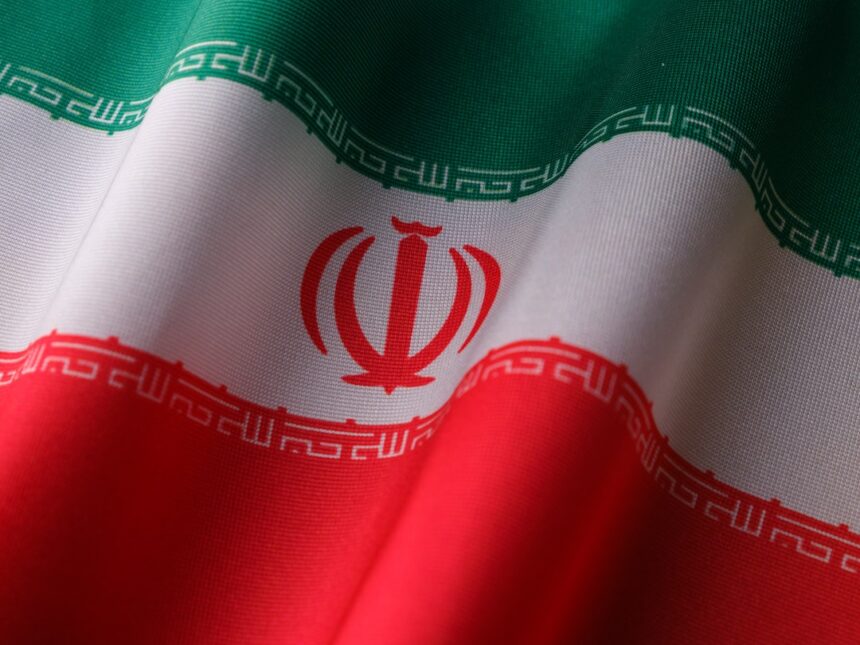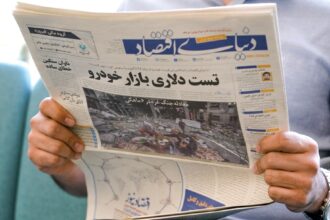The Iran crisis has deep historical roots, tracing back to the mid-20th century when the country underwent significant political upheaval. The 1953 coup, orchestrated by the United States and the United Kingdom, led to the overthrow of Prime Minister Mohammad Mossadegh and the reinstatement of the Shah, Mohammad Reza Pahlavi. This event sowed the seeds of resentment among Iranians, culminating in the 1979 Islamic Revolution that established the current Islamic Republic.
In recent years, tensions have escalated significantly, particularly following the U.S. withdrawal from the Joint Comprehensive Plan of Action (JCPOA) in 2018.
This agreement had aimed to limit Iran’s nuclear program in exchange for sanctions relief. The re-imposition of stringent sanctions by the U.S. not only crippled Iran’s economy but also intensified its pursuit of nuclear capabilities, leading to fears of a potential nuclear arms race in the Middle East.
The crisis has since evolved into a multifaceted dilemma involving geopolitical maneuvering, economic sanctions, and military posturing.
Key Takeaways
- Iran Crisis is a complex geopolitical issue with far-reaching implications for global security and stability.
- International response to Iran Crisis has been divided, with some countries supporting diplomatic efforts and others advocating for military action.
- The Iran Crisis has the potential to disrupt global economy, particularly in the energy sector, leading to increased oil prices and market volatility.
- There is a real potential for military conflict in the region, with tensions escalating between Iran and its adversaries.
- Humanitarian concerns are mounting as the Iran Crisis continues, with millions of people at risk of displacement and suffering.
International Response to Iran Crisis
The international community’s response to the Iran crisis has been varied and complex, reflecting a spectrum of interests and alliances. The United States has taken a hardline approach, emphasizing maximum pressure through sanctions aimed at crippling Iran’s economy and curtailing its regional influence. This strategy has garnered support from some allies, particularly Israel and Saudi Arabia, who view Iran as a significant threat to their national security.
However, this approach has also faced criticism from other nations that advocate for diplomatic engagement rather than confrontation. European nations have found themselves in a precarious position, attempting to balance their commitments to the JCPOA while addressing U.S. concerns about Iran’s nuclear activities.
The European Union has sought to maintain trade relations with Iran through mechanisms like INSTEX (Instrument in Support of Trade Exchanges), which aims to facilitate non-dollar transactions. However, these efforts have been met with limited success, as many European companies remain wary of U.S. sanctions.
The international response thus reflects a broader struggle between diplomacy and coercion, with varying degrees of commitment from different global actors.
Impact on Global Economy

The ongoing crisis in Iran has far-reaching implications for the global economy, particularly in energy markets. As one of the world’s leading oil producers, any disruption in Iranian oil exports can lead to significant fluctuations in global oil prices. The re-imposition of sanctions has already resulted in a sharp decline in Iranian oil production, which has contributed to rising prices and increased volatility in energy markets.
Countries heavily reliant on Iranian oil have had to seek alternative sources, further complicating global supply chains. Moreover, the economic fallout extends beyond energy markets. The crisis has created uncertainty that affects investor confidence worldwide.
Financial markets are sensitive to geopolitical tensions, and the potential for military conflict or further sanctions can lead to market instability. Additionally, countries that engage in trade with Iran face the risk of secondary sanctions from the U.
, which can deter foreign investment and hinder economic growth in regions that might otherwise benefit from trade with Iran.
Potential for Military Conflict
| Country | Military Spending (in billions) | Number of Military Personnel | Number of Military Bases |
|---|---|---|---|
| United States | 732 | 1,281,900 | 800 |
| Russia | 65.1 | 1,013,628 | 21 |
| China | 261 | 2,035,000 | 61 |
| India | 71.1 | 1,395,100 | 20 |
The specter of military conflict looms large over the Iran crisis, with various actors involved in a delicate balancing act. The U.S. has maintained a significant military presence in the region, conducting exercises and deploying naval assets as a show of force.
This military posturing is often perceived by Iran as a direct threat, prompting it to enhance its own military capabilities and engage in provocative actions, such as missile tests and naval confrontations in the Strait of Hormuz. The potential for miscalculation is high, as both sides navigate a landscape fraught with tension and mistrust. Incidents involving drone strikes or attacks on shipping vessels can quickly escalate into broader military confrontations.
Furthermore, Iran’s alliances with proxy groups across the region add another layer of complexity; these groups could engage in hostilities that draw regional powers into a larger conflict. The risk of a military confrontation remains a significant concern for policymakers and analysts alike.
Humanitarian Concerns
Amidst the geopolitical turmoil, humanitarian concerns have emerged as a critical aspect of the Iran crisis. The re-imposition of sanctions has had devastating effects on the Iranian population, leading to shortages of essential goods such as medicine and food. The economic hardship faced by ordinary Iranians has sparked protests and civil unrest, highlighting the human cost of political decisions made at higher levels.
International organizations have raised alarms about the deteriorating humanitarian situation in Iran. Reports indicate that access to healthcare has been severely compromised due to sanctions that restrict medical supplies and equipment. Additionally, rising inflation and unemployment have exacerbated poverty levels, pushing many families into dire circumstances.
As the crisis continues, addressing these humanitarian concerns becomes increasingly urgent for both domestic and international stakeholders.
Domestic Political Ramifications

The Iran crisis has significant domestic political ramifications that influence both governance and public sentiment within the country. The economic hardships resulting from sanctions have led to widespread discontent among the populace, challenging the legitimacy of the ruling government. Many Iranians blame their leaders for failing to secure their interests on the international stage, leading to calls for reform and accountability.
In response to growing dissent, the Iranian government has adopted a dual strategy: cracking down on protests while simultaneously attempting to rally nationalist sentiments against perceived external threats. This approach aims to consolidate power by framing dissent as unpatriotic while diverting attention from internal issues. However, this strategy may only serve to deepen divisions within Iranian society and fuel further unrest as citizens grapple with their frustrations over economic conditions and political repression.
Diplomatic Efforts to Resolve Crisis
Diplomatic efforts to resolve the Iran crisis have been ongoing but fraught with challenges. Various stakeholders have attempted to mediate discussions between Iran and Western powers, seeking a pathway back to negotiations over its nuclear program. The Biden administration has expressed a willingness to re-engage with Iran regarding the JCPOA; however, significant hurdles remain due to mutual distrust and differing priorities.
Regional powers have also played a role in facilitating dialogue. Countries like Oman and Qatar have historically acted as intermediaries between Iran and Western nations, leveraging their unique positions to foster communication. Nevertheless, these diplomatic efforts often face setbacks due to escalating tensions or provocative actions by either side.
The complexity of the situation necessitates sustained engagement from multiple parties if a peaceful resolution is to be achieved.
Role of Regional Powers in Iran Crisis
Regional powers play a crucial role in shaping the dynamics of the Iran crisis, each with its own interests and agendas. Saudi Arabia and Israel view Iran as an existential threat due to its nuclear ambitions and support for militant groups like Hezbollah and Hamas. These nations have actively lobbied for stronger international action against Iran while bolstering their own military capabilities in anticipation of potential conflict.
Conversely, countries like Iraq and Turkey maintain more nuanced positions due to their geographical proximity and economic ties with Iran. Iraq, in particular, finds itself caught between U.S.-Iran tensions while trying to stabilize its own internal politics influenced by Iranian-backed factions. Turkey’s relationship with Iran is characterized by both cooperation and competition; while they share economic interests, they also have conflicting agendas in Syria and other regional issues.
The interplay between these regional powers adds layers of complexity to an already intricate crisis.
Media Coverage and Public Opinion
Media coverage of the Iran crisis significantly influences public opinion both domestically and internationally. In Western media outlets, narratives often focus on Iran’s nuclear ambitions and its role as a destabilizing force in the Middle East. This portrayal can shape public perceptions of Iran as a rogue state that poses a threat to global security, thereby justifying calls for more aggressive policies.
In contrast, Iranian state media presents a narrative that emphasizes national sovereignty and resilience against foreign aggression. This framing seeks to rally public support around the government while portraying external pressures as unjustified interventions in Iranian affairs. Social media platforms also play a pivotal role in shaping public discourse; citizens use these platforms to voice dissent or support for government policies, creating a dynamic landscape where opinions can rapidly shift based on current events.
Implications for Nuclear Non-Proliferation Efforts
The ongoing crisis poses significant challenges for global nuclear non-proliferation efforts. The breakdown of trust between Iran and Western powers undermines existing frameworks designed to prevent nuclear proliferation. As Iran continues to advance its nuclear program beyond JCPOA limits, concerns grow that other countries in the region may pursue similar paths toward nuclear capabilities as a countermeasure.
The potential for an arms race in the Middle East raises alarms among non-proliferation advocates who fear that regional instability could lead to catastrophic consequences if nuclear weapons were ever deployed. Efforts to reinvigorate diplomatic negotiations are critical not only for addressing Iran’s nuclear ambitions but also for reinforcing global norms against proliferation that have been established over decades.
Future Scenarios and Potential Resolutions
Looking ahead, several scenarios could unfold regarding the Iran crisis, each with distinct implications for regional stability and international relations. One possibility is a return to negotiations leading to a renewed JCPOA or an even broader agreement addressing not only nuclear issues but also regional security concerns. Such an outcome would require significant concessions from both sides but could pave the way for improved relations.
Alternatively, continued escalation could lead to military conflict, either through direct confrontation or proxy engagements across the region. This scenario would likely exacerbate humanitarian crises and further destabilize neighboring countries already grappling with their own challenges. Lastly, there remains the possibility of an internal shift within Iran that could lead to changes in governance or policy direction.
A more reformist government might seek rapprochement with Western powers while addressing domestic grievances more effectively. Ultimately, the future of the Iran crisis hinges on complex interactions among domestic politics, international diplomacy, and regional dynamics—each influencing potential resolutions in unpredictable ways.
In the wake of the political fallout from the Iran crisis, many analysts are examining the broader implications for international relations and regional stability. A related article that delves into these issues can be found on the website “In The War Room.” This piece provides an in-depth analysis of the geopolitical shifts and the potential long-term effects on global diplomacy. For more insights, you can read the full article by visiting In The War Room. This resource offers a comprehensive overview of the current situation and its possible outcomes, making it a valuable read for anyone interested in understanding the complexities of the Iran crisis.
WATCH THIS! From Tehran to Blackwater: The Real Story
FAQs
What is the Iran crisis?
The Iran crisis refers to the escalating tensions between Iran and the United States, particularly following the assassination of Iranian General Qasem Soleimani by a US drone strike in January 2020.
What is the political fallout of the Iran crisis?
The political fallout of the Iran crisis includes strained relations between the US and Iran, increased military presence in the region, and heightened geopolitical tensions. It has also led to debates and discussions about the US’s foreign policy in the Middle East.
How has the Iran crisis affected international relations?
The Iran crisis has strained international relations, particularly between the US and Iran, as well as with other countries in the region. It has also led to concerns about the stability and security of the Middle East and the potential for further conflict.
What are the implications of the Iran crisis on global security?
The Iran crisis has raised concerns about global security, particularly in the Middle East. It has led to fears of potential military conflict, increased terrorism, and disruptions to global oil supplies, which could have widespread economic implications.
How has the Iran crisis impacted domestic politics in the US and Iran?
The Iran crisis has had significant impacts on domestic politics in both the US and Iran. In the US, it has sparked debates about the president’s use of military force and the country’s foreign policy. In Iran, it has led to increased nationalism and support for the government, as well as criticism of US actions.




